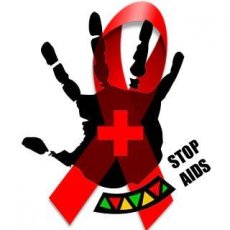Medical expert of the article
New publications
Antiretroviral drugs reduce the risk of HIV infection by 96%
Last reviewed: 30.06.2025

All iLive content is medically reviewed or fact checked to ensure as much factual accuracy as possible.
We have strict sourcing guidelines and only link to reputable media sites, academic research institutions and, whenever possible, medically peer reviewed studies. Note that the numbers in parentheses ([1], [2], etc.) are clickable links to these studies.
If you feel that any of our content is inaccurate, out-of-date, or otherwise questionable, please select it and press Ctrl + Enter.

Experts from the US National Institutes of Health have concluded that people infected with HIV can reduce the risk of infecting their sexual partners by 96% if they start taking antiretroviral drugs immediately after the virus is detected.
The study was conducted starting in 2005 at 13 sites across nine countries in Asia, Africa and Latin America, the BBC reports. It involved 1,763 couples, each of whom initially had only one partner infected with HIV.
The couples were divided into two groups: in one, the HIV-infected partner began taking antiretroviral drugs immediately, and in the second, only after the number of white blood cells decreased under the influence of the virus. The results of the study were so convincing that it was stopped four years earlier than planned.
All couples (most of whom were heterosexual) were regularly tested for HIV and provided free condoms. In couples in which the HIV-infected partner started antiretroviral therapy immediately, only one case of transmission was recorded.
In another group of couples, there were 27 cases of partner infection. According to WHO, 80% of HIV cases are transmitted sexually. The organization's director general, Margaret Chan, called the results of the study a very important development. "The findings from this work will further support new recommendations that WHO will issue in July to help people living with HIV protect their partners," Chan added.
Previous studies have suggested that antiretroviral drugs may be useful in preventing transmission of the virus, but this is the first time this has been proven in clinical trials, scientists say.
"International donors can no longer ignore the evidence," said Keith Alcorn, a spokesman for the charity NAM. "HIV treatment is a very powerful form of prevention of further spread of the disease and has the potential to significantly impact the HIV epidemic in the hardest-hit countries."

